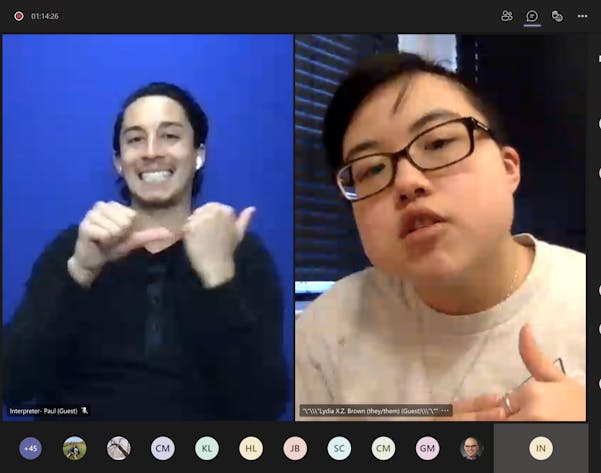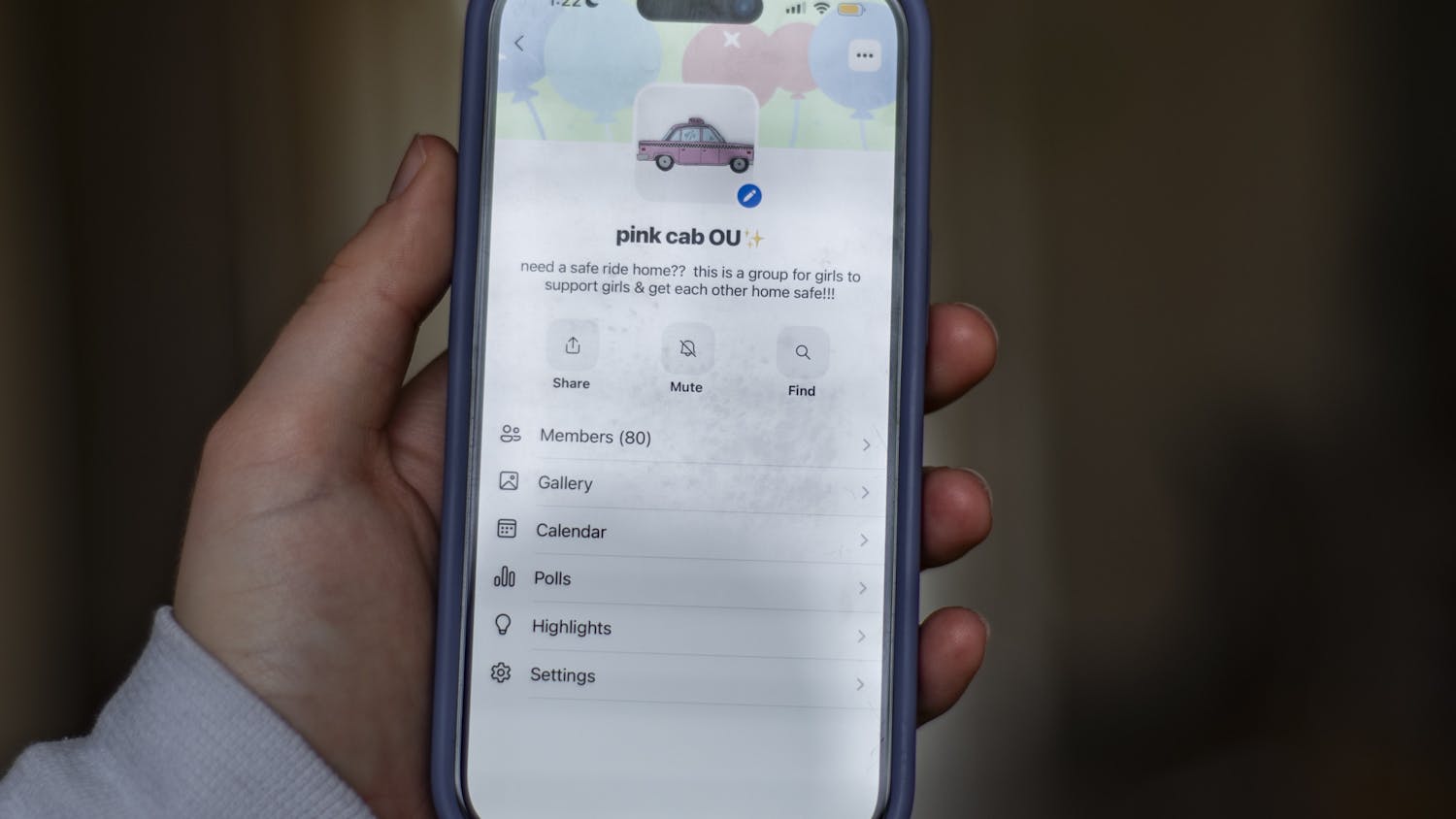Lydia X. Z. Brown, disability rights advocate, writer and attorney, gave a presentation titled “Weaving Crip, Mad, Queer, Trans Dreams: Disability Justice for Our Classrooms, Our Futures, and Our Freedom” on April 7 at 6:00 p.m. via Microsoft Teams. The event was hosted by Ohio University’s LGBT Center in collaboration with the Women’s Center and the Patton College of Education.
Brown, who uses they/them pronouns, spoke passionately about disability justice, an intersectional framework and set of practices created by queer and transgender disabled people of color. Disability justice examines ableism and its relationship to other identities and forms of oppression, like race, class and sexuality.
“It recognizes the deep interconnectedness of all of our struggles and therefore, of all of our movements, of all of our communities and all of our work toward the project of liberation,” Brown said.
Through the lens of disability justice, Brown discussed how U.S. universities responded to the pandemic, and how those responses, “were rooted in deep anxieties around class, race and disability.”
Online college programs have long been associated with students who are more likely to come from marginalized communities, Brown said. So, when university learning went online due to the pandemic, some professors increased expectations in their classes to uphold their institutions’ more “respectable” reputations.
“And so because of that, some of the professors thought to overcompensate by expecting students to outperform and to overperform in order to prove that their coursework was sufficiently rigorous, that the work they were doing, represented through intellectual labor, in order to prove the move to online learning did not in any way diminish quality of learning,” Brown said.
Brown saw that response to be reprehensible. They believe that “the only humane thing for any university to have done, would have been to immediately suspend all classes,” to pay for students to travel home or find safe housing, and to continue to fairly compensate all university employees.
However, no university in the U.S. did that, which Brown believes showcases a number of flaws that are present in the educational institution of U.S. universities.
“…The whole world is going through a crisis, yet you are made to believe by the ableist, racist, classist structure of the university, that you have to perform productivity, contribution, labor and intellect, just to be granted a tiny modicum of leniency or compassion, which remains contingent and conditional,” Brown said. “The environment that we are working in teaching in and learning it is steeped in ableism.”

Because of the relevancy of Brown’s presentation in the university setting, some attendees feel that OU faculty and administration would have also benefited from attending the event.
“I wish President Nellis and all of the deans and professors here at OU sat in for this presentation and took thorough notes,” Emily Baron, a junior studying journalism, said in an email. “Needs just simply aren’t being met and students have been exploited as long as the educational system has existed, and especially so within the last hellish year due to the havoc imposed by the (COVID-19) pandemic.”
Jan Huebenthal, assistant director of the OU LGBT Center, organized the presentation with access in mind. Live American Sign Language interpretation and captioning were provided during Brown’s presentation.
“The reason why we wanted to really be proactive about accessibility is because I think sometimes when we do these virtual spaces, we make assumptions that everyone has the same level of access in terms of being able to understand and read and being able to follow and that everyone speaks the same language,” Huebenthal said.

More than 50 people attended the virtual event. Brown’s presentation seemed to resonate with most. The Teams chat was active and participants used it to voice their support of Brown’s ideas and ask related questions. For some, “Weaving Crip, Mad, Queer, Trans Dreams” was their first introduction to ideas of disability justice. However, Brown, Huebenthal and Baron know the presentation’s message was strong and timely.
“I have never attended an event where disability justice is spoken about, let alone centered,” Baron said in an email. “As I get closer to graduation and entering the workforce, I’m able to recognize the folly in the educational system in regards to meeting the needs of students, and I would like to prepare myself for how to dismantle oppressive ableist ideologies in my future place of work.”






